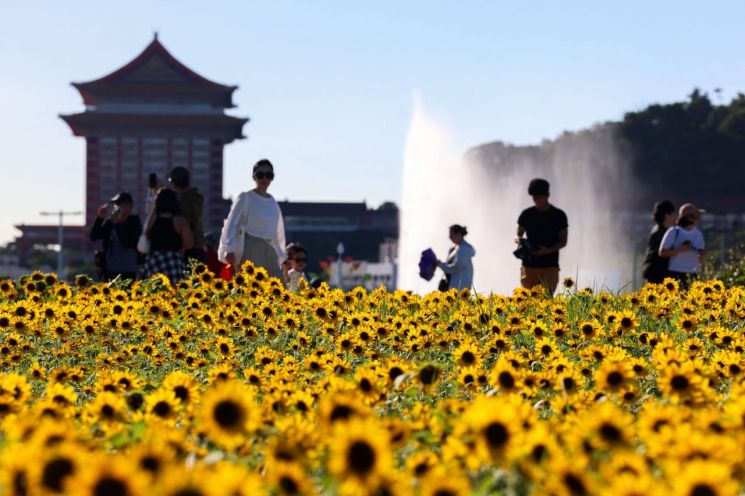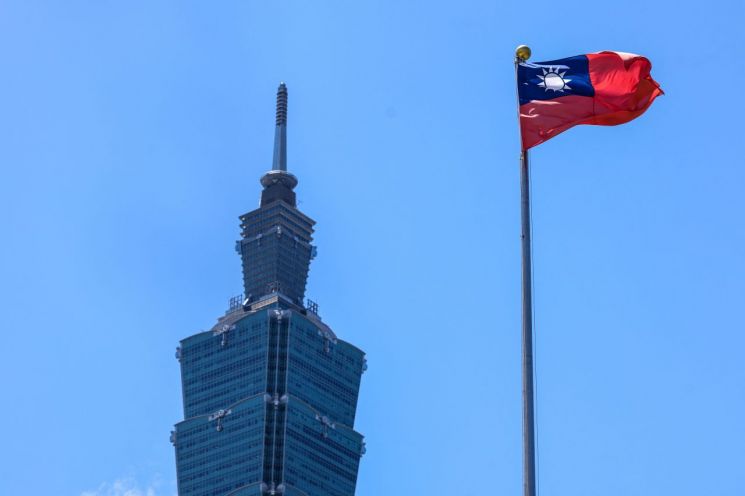"Take a Break When It's Hot": Taiwan to Legislate Special Measures as Heatwaves Increase
"Take a Break When It's Hot": Taiwan to Legislate Special Measures as Heatwaves Increase
The Taiwanese government is showing signs of creating "heatwave holidays" to prepare for prolonged heatwaves caused by climate change. According to Yonhap News on November 4, citing Taiwanese media such as China Times and United Daily News, the Legislative Yuan's Transportation Committee reviewed a proposed amendment to the "Meteorological Act" the previous day. This amendment would allow the issuance of heatwave warnings by including abnormally high temperatures as a type of disaster-related weather.
 The Taiwanese government is showing signs of creating "heatwave holidays" to prepare for prolonged heatwaves caused by climate change. Photo by Getty Images
The Taiwanese government is showing signs of creating "heatwave holidays" to prepare for prolonged heatwaves caused by climate change. Photo by Getty ImagesAccording to Yonhap News, the Ministry of Transportation and Communications of Taiwan stated in a parliamentary inquiry the previous day that it is, in principle, in favor of heatwave holidays due to high temperatures. The Central Weather Administration (CWA), which operates under the Ministry, is expected to submit and announce a draft of the relevant amendment within this month, collect public feedback, and go through a two-month legislative notice period, aiming to complete the legislation next year.
Lin Guoxian, Deputy Minister of Transportation and Communications, explained, "The implementation of heatwave holidays will be partial and gradual, such as rest periods or adjustments to work hours, depending on the situation, rather than a full day off like those caused by typhoons." L? Guochen, Director of the CWA, added, "Summers in Taiwan are getting longer, and due to global warming, even Yushan, the highest mountain in Taiwan at 3,952 meters above sea level, is recording new temperature highs every year."
 Photo to aid understanding of the article showing citizens walking through a sunflower field at Dajia Riverside Park in Taipei, Taiwan. Photo by AFP Yonhap News Agency
Photo to aid understanding of the article showing citizens walking through a sunflower field at Dajia Riverside Park in Taipei, Taiwan. Photo by AFP Yonhap News AgencyAs climate change accelerates, the number of high-temperature days in Taiwan last year reached 63, nearly double the 34 days recorded in 2023. According to statistics from the Ministry of Health and Welfare, the number of patients suffering from heat-related illnesses in July last year was 1,204, about three times higher than the 423 cases during the same period in 2021. In addition, the number of hospital visits due to heat-related illnesses last year was 3,942, a significant increase compared to 2,738 in 2023.
The Taiwanese government currently issues high-temperature alerts for major cities in three stages-yellow (36°C), orange (37°C), and red (38°C)-updated every three hours. In the future, these alerts will be further refined and expanded to township and district levels, with updates every hour.
 The Taiwanese flag is fluttering in front of the Taipei 101 building. Photo by AFP Yonhap News
The Taiwanese flag is fluttering in front of the Taipei 101 building. Photo by AFP Yonhap NewsSome in the political sphere are calling for heatwaves to be included as a work hazard. In Taiwan, the number of worker deaths caused by heat-related illnesses was one in 2024 and two in 2023. The Taipei City government conducted "outdoor work inspections in high temperatures" at 1,799 workplaces from June to September last year, identifying 48 violations. Among them, five workplaces where workers were hospitalized due to heat-related illnesses were fined 150,000 New Taiwan dollars (approximately 700,000 Korean won). This summer, the maximum fine has been raised to 300,000 New Taiwan dollars (about 1.4 million Korean won).
Recently, a research team at National Yang Ming Chiao Tung University analyzed more than 20 years of accumulated population health data and climate data since the early 2000s. They found that people who were repeatedly exposed to heatwaves every two years experienced an average advancement of 8 to 12 days in their biological age. In other words, the health impact of climate change may not be limited to acute conditions such as heatstroke or dehydration but could also shorten healthy life expectancy in the long term. The researchers pointed out, "With heatwaves becoming routine, humanity is facing a new threat of accelerated aging."
대화 참여하기